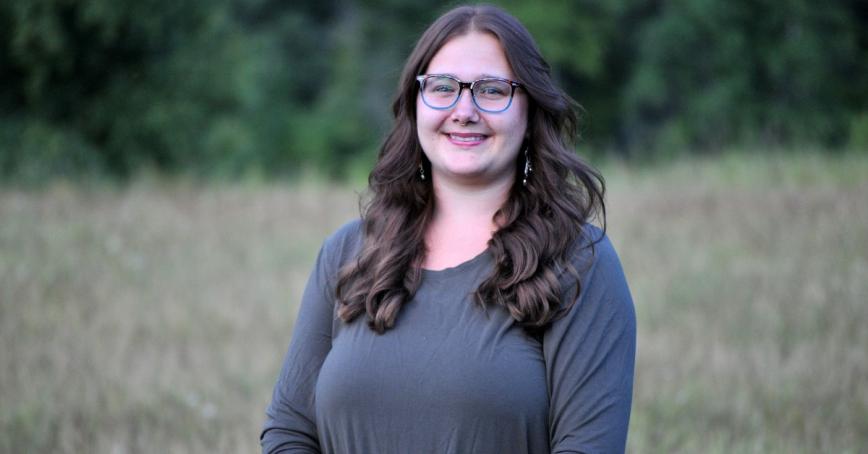Partnerships for Sustainable Community Development
Topics
Featured
Share online

Learn more about the Master of Arts in Interdisciplinary Studies program.
Leeza Perehudoff is making waves in the Master of Arts in Interdisciplinary Studies (MAIS) program, as she explores how applied research partnerships drive sustainable community development in rural Canada.
Perehudoff is based in Castlegar, BC but spent a few years living in the Yukon Territory.
“While I was there, I discovered how deeply I care about the health and well-being of the natural environment and the non-human parts of nature,” she says. “When I moved back to the Kootenays, I pursued an education in environmental sciences, and from there it led to natural resource management-based work.”
Perehudoff has a bachelor’s degree in Geographic Information Systems and a diploma in Recreation, Fish and Wildlife Technology from Selkirk College. She now works at the college as a social innovation Research Assistant, supporting projects that focus primarily on personal, community and regional well-being.
“My work at Selkirk College is what led me to want to further ground my knowledge and understanding of social sciences, especially related to research.”
When Leeza started considering a master’s degree, Royal Roads University came highly recommended by her mentor and ultimately, the decision came down to the flexibility that Royal Roads provides.
“The only way I could feasibly pursue a master's degree was by working full time and studying remotely from my community, and that is what led me to Royal Roads,” she says.
"I specifically chose the Master of Arts and Interdisciplinary Studies program because my understanding—through personal, lived experience and work—is that we're unlikely to solve society's most pressing issues when we're working in silos, when we're independent from other disciplines.”
“I think that tackling the complex, concurrent crises that we face requires integrating knowledge from across disciplines and creating solutions together.”
Perehudoff is about halfway through the MAIS program and is pursuing the thesis option.
“I chose the thesis pathway because it aligns with my career in research,” Perehudoff says. “It's customary that a researcher is a primary investigator, designing and conducting their own research and then publishing the results…it really is a rite of passage to complete the thesis pathway.”
Perehudoff’s research is centralized in her lived experiences in rural communities – seeing that people in these places are more connected to the “non-human parts of nature” and are often more considerate about ecological health. The flipside is that, “rural communities are often reliant on natural resource extractive industries, for financial purposes. This poses challenges when trying to balance competing environmental, social, and economic priorities, which leads me to want to explore the well-being of rural places.”
“For my thesis, I aim to explore how applied research partnerships between post-secondary institutions and community agents and organizations can enhance sustainable community development,” she explains. “I will use a case study approach to understand how this applies to Selkirk College as a rural community college with strong ties to the region that it serves.”
“More broadly, I suspect that efforts to enhance sustainable community development through applied research can be transferable to other rural Canadian communities.”
Learn more about the Master of Arts in Interdisciplinary Studies program.